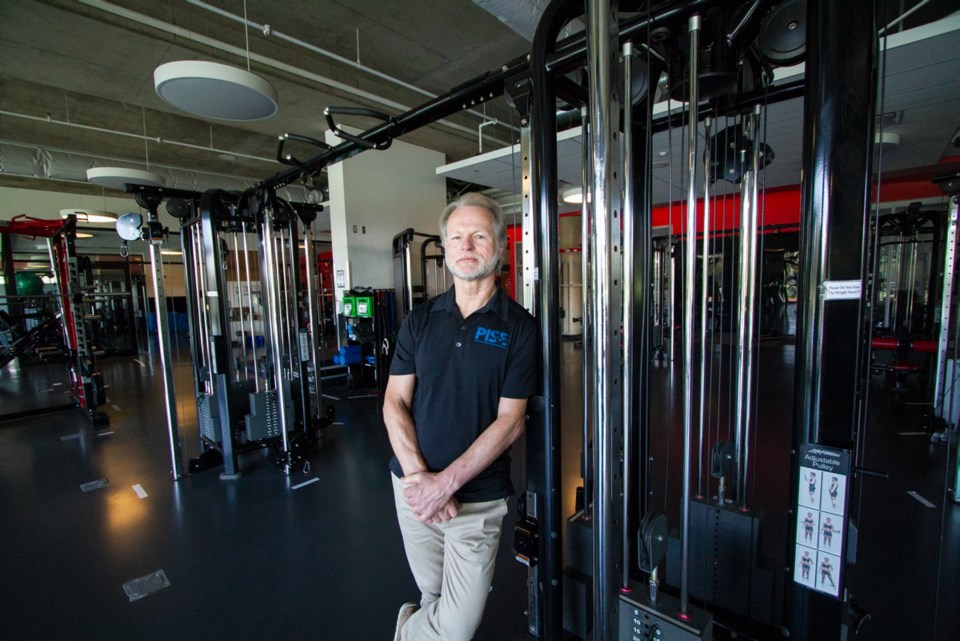Taking care of business series. A commentary by the CEO of Pacific Institute for Sport Excellence (pise.ca), the tennis analyst for Sportsnet and a former Davis Cup tennis player and Olympic coach for Canada. This is part of our continuing series on the impact of the COVID-19 pandemic on local businesses and organizations.
For all of us, the change came swiftly and initially it felt surreal, like out of a movie.
For those who remember 9/11 vividly there was a similar sense of disorientation and disbelief early on. At PISE we went from posting notices in our facility on March 9 for physically distancing and more frequent handwashing to closing our main fitness centre and gym and laying off close to 50 staff on March 20.
That was a tough day and one I know so many of us have had to manage with great stress and emotion.
Fortunately, our laid off staff have been able to apply for CERB and other subsidies to which we committed to providing some top-up to further assist. It helps for now if the bridge to bring everyone back is not too long.
Management is still in place to work on keeping a not-for-profit charity like PISE financially stable and find solutions to the hundreds of thousands of revenue dollars lost through not being able to run programs or activities until at least June.
COVID-19 has made financial pain universal. We remain hopeful that some semblance of controlled, phased activities can take place in the summer as we slowly and methodically reintegrate as a community.
A small silver lining for us is that a major gymnasium renovation can go forward with previously committed funds as the gymnasium is currently unused and the companies providing the work are hungry for business.
Like Victoria, PISE is an optimistic, community-oriented organization. I am proud to have been the CEO for 10 years and lead a young, smart and passionate team that is committed to our purpose to transform lives through physical activity and sport.
While many in the community may still think of PISE as a sport institute that trains Olympic and Paralympic athletes, we also house Camosun College’s Centre for Sport and Exercise Education, including degree programs in Sport and Fitness Leadership, Athletic and Exercise Therapy and Sport Management for about 450 students.
However, it is our community role, promoting and delivering programs for healthy, active living through the concept of physical literacy, that has really made PISE unique.
Through many great partnerships, including the Victoria Foundation, we deliver physical literacy programs to more than 7,000 children and youth annually throughout the community in schools, recreations centres, health organizations and at PISE. Our programs are designed to be accessible and inclusive, which we believe are core community values.
Physical literacy is about knowing how to move effectively and use our body in a way that makes any type of physical activity, from taking a walk to participating in sport, both enjoyable and sustainable. Everyone being active is closely linked to community health.
The COVID 19 crisis has halted our programs, but I am encouraged for our future. I love walking through our neighbourhood and seeing so many more people, particularly families together, playing games, gardening, walking, running and biking.
This is a trend we want to see continue once we start to reconnect and one that we hope leads to a greater appetite for how to develop physical literacy at any age and level.
Developing physical literacy and being active is not a program, but a lifelong endeavour for all of us because it leads to physical health, which is intimately connected to our mental and emotional health and our overall holistic well-being.
That is perhaps our most powerful tool in warding off viruses like COVID-19 and personally managing the resulting disruption to our way of life.
I am confident in the strength of our community and know that we will rally and cooperate to help each other recover.
The recovery will be the most difficult part of what we are experiencing. I also believe that some of the trends like more streamlined use of technology to aid our ability to work from home effectively, finish post-secondary education courses online, and the increased use of telemedicine will become part of our regular routines.
That will be a good thing for us personally, and for our environment. But for now — I have exchanged my tennis thumb for a green thumb!



